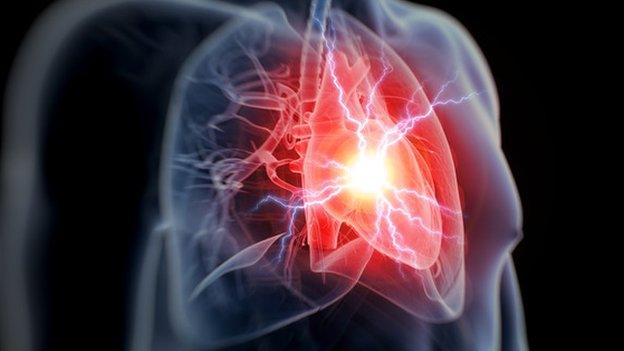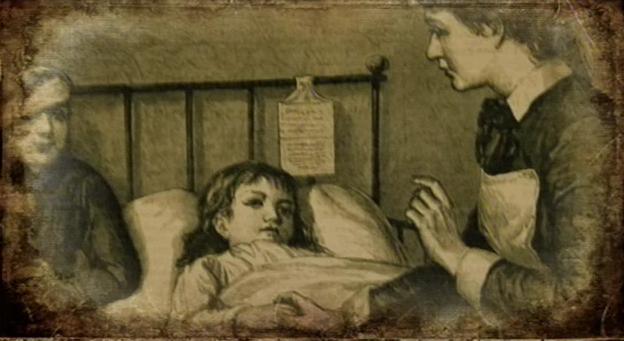The changing face of death
- Published

Chronic conditions such as heart disease have replaced infectious diseases as the biggest killer
There are few things guaranteed in life. Death - along with taxes, as the saying goes - is one of them. But what we die of has and is continuing to change.
A hundred years ago, infectious diseases were the scourge of the nation. As the 1800s drew to a close, more than a third of all deaths were caused by the likes of small pox, measles, cholera, tuberculosis and diphtheria.
Now, thanks to medical advances - and vaccines in particular - the burden of infectious illnesses has been reduced significantly. Smallpox has been eradicated.
This has, in turn, had a huge impact on life expectancy. Before World War One, nearly two thirds of deaths were among the under-60s. Now only one in 10 is.
But as the population has aged, there has been a rapid growth in chronic conditions. Half of all deaths are now linked to circulatory problems - like heart disease - and cancers. This has had major implications for the way the NHS works, with an estimated 70% of the budget spent on long-term conditions like these.
Only this week, Maureen Baker, president of the Royal College of General Practitioners, said the growing pressures on doctors - a key theme of the election campaign - were partly a result of the growth in such diseases, which had meant GPs having to provide care that was once the preserve of "hospital consultants".

A child dying of tuberculosis, a common ailment in the 1800s
So what will happen next? Clearly predictions are hard to make. For example, shortly after the smallpox breakthrough, a completely new threat emerged that no-one could have foreseen. It was HIV.
The big unknown in today's world is the threat from drug resistance. Chief medical officer Prof Sally Davies has talked of an "apocalyptic" situation where people could die of what are currently routine infections because of the lack of effective antibiotics.
Other potential scenarios linked to climate change have been put forward. Perhaps the most eye-catching was a recent warning that tropical diseases could take hold.
Experts wrote in the Lancet Infectious Diseases journal this year that warmer UK temperatures could make conditions favourable for mosquitoes to breed, opening the door to conditions such as dengue fever and West Nile virus in the next few decades.
But while such developments need to be guarded against, probably the best indication of what is around the corner comes from the World Health Organization's Global Burden of Disease, external research programme.
It has been tracking the changing patterns of illness since 1990 and also makes predictions - as the table below shows. (It is worth noting that different types of cancers are listed separately.)
Perhaps the most noticeable change is the way that dementia has climbed up the table. The ageing population means the number of cases is growing all the time - and there is evidence that the NHS is already struggling to keep up.
Years of poor health
A report last year by the Alzheimer's Society found that only a third of the care that patients needed was provided by the state (the NHS or councils) with the rest coming from support from family and friends or from services they paid for. The charity branded it a "dementia tax" and called for an overhaul in how services were organised.
But the changing patterns of disease pose another dilemma - a growing burden of ill health. Whereas infectious diseases tended to claim lives quickly, chronic illness can lead to many years of poor health.
Research by Public Health England has shown that while life expectancy has grown over the past 20 years, healthy life expectancy has not increased so quickly - with the UK now seeing levels of ill health above those of other developed countries.
A major cause is how people live their lives, with smoking highlighted as the biggest factor, followed by being overweight and then lack of activity and diet.
The result is that the average person spends more than a fifth of their life in poor health, according to the Office for National Statistics, external. The warning is clear: if something is not done, ill health could well join death and taxes as a guarantee in life.